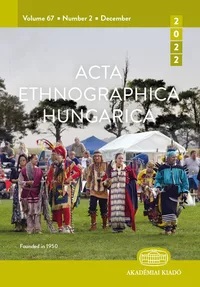The Social Embeddedness of School-Holiday Meals for Children Based on Discourses of Need and Deservingness
The Social Embeddedness of School-Holiday Meals for Children Based on Discourses of Need and Deservingness
Author(s): Ildikó HuszSubject(s): Cultural Anthropology / Ethnology
Published by: Akadémiai Kiadó
Keywords: child food poverty; holiday meals provision; perceptions; deservingness; the Roma
Summary/Abstract: The study examines the provision of school-holiday meals for children and shows how it is embedded in society. Proper nutrition is very important for children's physical and cognitive development. However, international research shows that children's social and cultural background has a significant impact on their nutrition. To reduce these disparities and ensure that all children have a healthy diet, effective government intervention is necessary. In Hungary, school canteens and free meals during school holidays for children in need serve this purpose. The latter service is of great importance for the children of families affected by food poverty. Yet, statistics show that some of these children are unable to use this service. This study examines the period before 2016 and highlights the social embeddedness of the service and its consequences on the provision. Whether child food poverty is perceived as a social issue and a common cause generating community intervention largely depends on the local actor's correct perception of the issue, the local appraisal of need, and the consideration of parents' “deservingness.” The study also makes some suggestions about areas where further interventions should focus to improve the nutrition of children affected by food poverty.
Journal: Acta Ethnographica Hungarica
- Issue Year: 68/2023
- Issue No: 1
- Page Range: 125-142
- Page Count: 18
- Language: English

